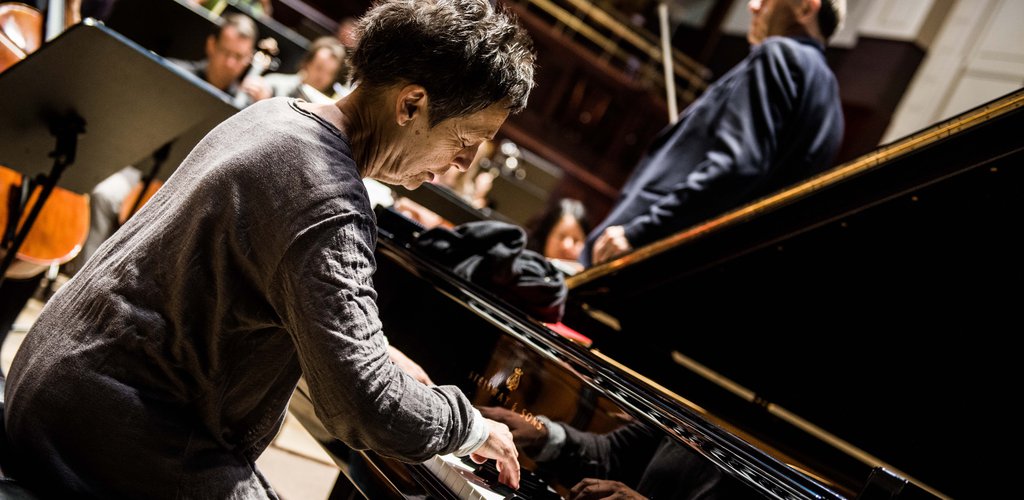If all the orchestra offered was characterful sounds strung out on a line we might get quickly satiated, but with Iván Fischer conducting (he’s been at the helm for 30 years) there’s also a precious dynamic thrust, felt at its most powerful in Brahms’ First Symphony. Time and again in this compelling reading, subtleties of phrasing and rhythm pricked the ear, yet nothing dislodged the big picture, from the opening polyphonic tussles through the reflective inner interludes to the concluding victory parade. Alone on the podium — no score, no music stand, no safety rail — Fischer stirred the musicians to dig out Brahms’ heart and soul.
Mozart’s spirit was also reborn, particularly when Maria João Pires, small as a bird, arrived for the Piano Concerto No 9, the Jeunehomme. Even in the more forthright stretches, shenever exerted brute force; it was as if the notes emerged by themselves, deliciously clean, penetrating, fresh and unfussy.
The height of wonder came in the finale, with its racing filigree so delicately shaded, so lightly woven with the orchestra, that the audience collectively held its breath. I don’t know what her singing is like, but at the keyboard Pires is unbeatable.
